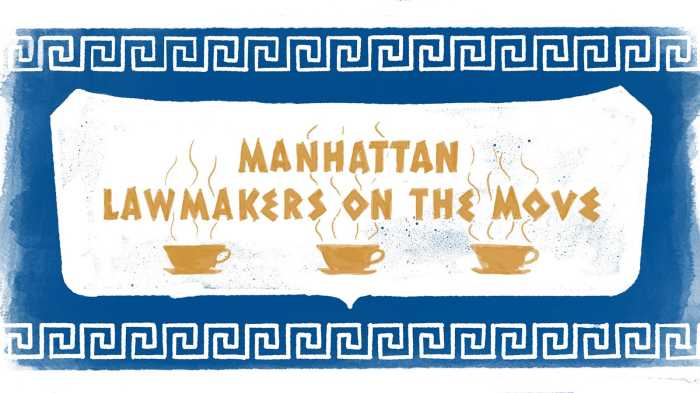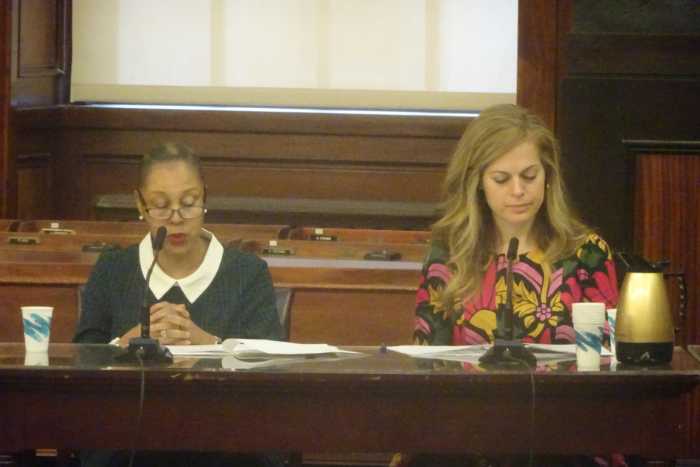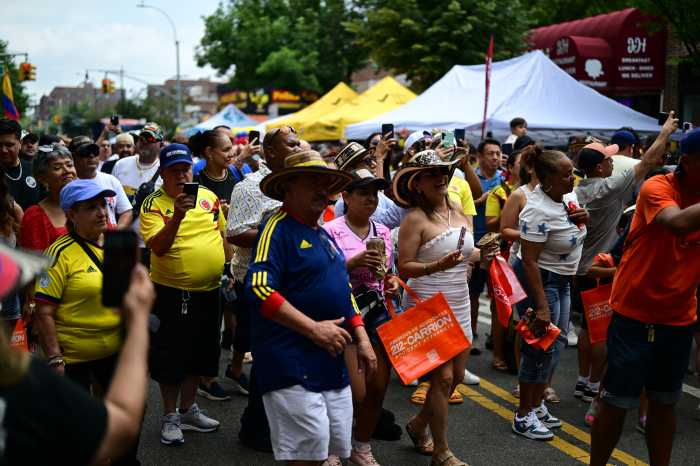Council Member Mark Levine (D-Manhattan-Valley, Manhattanville) has some cautiously optimistic news for his constituents; in short, New York is turning a corner, but we won’t be out of the woods for a while.
Levine was the featured guest at the Four Freedoms Democratic Club (FFDC) monthly meeting last night. The meeting took place at 6:45 p.m. on Zoom, and also saw appearance from Council Member Ben Kallos (D-Yorkville, Lenox Hill) and Assemblymember Rebecca Seawright (D-Upper East Side, Yorkville), among others.
Levine began by answering the question on everyone’s mind; has New York truly reached its peak level of COVID-19 infection rates? As he explained, what we’ve reached is not quite a peak, but rather a plateau. In other words, the daily rate of infections is unlikely to get any higher, but it will stay at that rate for a while before it goes down.
“We really have seen a slowdown in the number of new patients coming into our hospitals because of COVID-19, and that’s a really big deal,” said Levine. “But I also want to be honest about how bad it is in the hospitals sill. The proper word is not ‘peak’; it’s ‘plateau’. We’re going to remain at a very high level of intensity for our hospitals for a while. We certainly have been there for the past week, consistently.”
Levine went on to explain how we can go about returning to “normalcy”. Going forward, we’re going to have to ramp up testing tremendously to prevent a second surge. He estimates that we’ll have to test at least 100,000 people per day; currently, we’re only testing about 10,000 per day, and we can barely even manage that due to a global shortage of supplies.
According to Levine, our only hope is for the federal government to “step up”.
“There is a global scramble right now for [the ingredients for testing], just like there has been for ventilators, and just like there has been for protective gear, like masks,” said Levine. “We need the federal government to step up and organize production. That doesn’t mean just asking who’s out there who can produce it; it means directing manufacturers to retool, to produce the core component of testing.”
On a similar note, Levine also claimed that we’ll need a lot of money – much more than we’ve been getting. In addition to testing, we’ll need money for a new transportation system for sick people, a system of hoteling to allow COVID-19 patients to comfortably self-quarantine, and a telemedicine system to let patients maintain contact with their primary care providers.
“We need the next stimulus package, round four, to include money for localities to ramp up this kind of containment work,” said Levine. “We need federal help for that. We’re going to need to create noise, about the need for our next federal stimulus to include funding for this kind of work.”
Levine’s hope is that, once our daily infection rate goes down, we’ll be able to test and track every new patient we diagnose. However, we won’t reach that point until we have the infrastructure necessary to facilitate mass testing.
“That will allow us to, in a measured, deliberate way, return to something like normal life,” said Levine. “Everybody who’s screaming that they want to reopen the economy, including our President, needs to be obsessed with building these kinds of systems I was talking about. Because if we have them in place, then most of us will be able to return to the public.”
Democratic District Leader Ben Wetzler asked Levine about the possibility of a second outbreak after this one subsides. In response, Levine conceded that it’s far from impossible, given that we’ve seen a similar situation play out in China. On Apr. 13, China reported 108 new COVID-19 infections – the most they’d seen in six weeks – as a result of imported infections.
However, Levine also suggested that New York’s absurdly high peak during the first wave may help it in the long run.
“Here, because of the amount of immunity we’ve developed, we might actually be less vulnerable,” said Levine. “But the truth is, until we have a vaccine, there will be a risk. So we won’t be able to return to an entirely normal life. We can’t afford to let our guard down because of that risk.”


![City Councilman Mark Levine [Photo provided by Jake Sporn]](https://politicsny.com/wp-content/uploads/2021/02/Levine-Health-Hearing-2-scaled-1.jpg?quality=51&w=1200)





